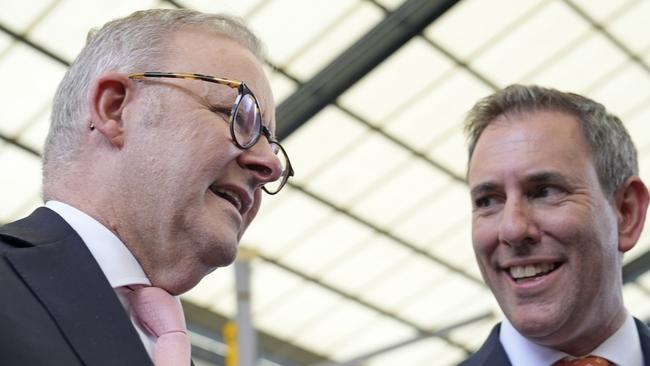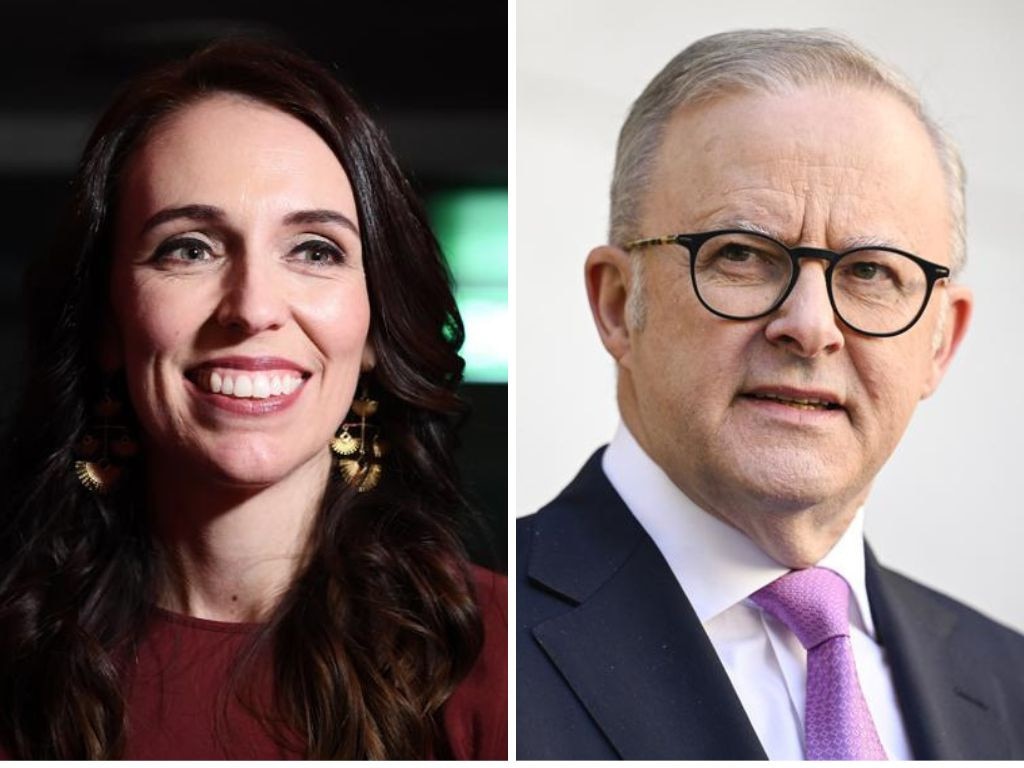
The greatest risk to restoring Australia’s prosperity is whether Labor learns the wrong lessons from its re-election.
Anthony Albanese’s historic victory may have brought new stability to the political landscape but the economic, strategic and budget pressures and risks that face a second-term Labor government have only become more acute.
The question is whether the Prime Minister dares to be bold and make the necessary course corrections rather than double down on an agenda driven by a more emboldened left-leaning and union-leveraged caucus.
The scale of the challenge is immense. And the tensions have only intensified with institutionalised societal expectations, ideology and political will pulling against economic uncertainty, increasing budget pressures and global strategic risk. The country can’t afford a repeat of the first-term approach. Yet this is what Albanese offers.
What Albanese is being offered is a rare opportunity. A government with a thumping majority can take risks a shaky first-term government without such a mandate could. Albanese can take risks in doing what needs to be done. Ironically, maintaining unity within a significantly expanded caucus with the left now in ascendancy has the potential to put a handbrake on reform.
How Australia got itself into this position cannot be contained to the global circumstances alone.
For the best part of two decades, the nation has coasted.
While there is rhetorical acceptance of the challenges, a rational debate about the economic reform needed has not been framed. The Coalition failed to do this and Labor in its first term chose to ignore it. The debate can’t be framed without the basic arithmetic scale of the problem first being understood. This is the dilemma. A budget in deficit over the next four years of $178bn. If anyone is serious about indexation of personal income tax, then there is another $50bn to add to it.
The cost to meet what is required in defence spending, which if the government was serious would be a target of 3 per cent of GDP, that’s another $100bn over the forward estimates. And if serious attention to debt isn’t addressed soon, the interest on debt can be thrown into the mix.
The US is in a worse position as is the UK. But that doesn’t mean Australia isn’t heading that way.
To put it in context, if the need for income tax reform and defence spending are to be realised, it would take the combined budget of Medicare and the NDIS to do it.
The budget problem is profoundly deep. If you overlay the arithmetics of the fiscal challenge with a slow growing economy it becomes diabolical. People’s excessively growing expectations of government to act as the insurer during down cycles, or worse, to continually supplement incomes, turns this into a politically poisoned cocktail. Everyone wants a magic wand to fix all this.
Albanese will be confronted with this problem within the next three years in ways hard to contemplate. So too will the Coalition. Without a serious agenda, and conviction, it is as hard to do from government as much as framing a response from opposition. This becomes a serious question for the Liberal party room next week when it decides on a new leader. A transactional approach to getting numbers may not deliver the agenda that it must rally around if it is serious about the problem which it tried in opposition to identify. How many MPs on both sides of the aisle grasp the magnitude of this is questionable.
Economist Chris Richardson has been the most vocal critic of the spending equations on both sides of politics during the election campaign, in defiance of the obvious problem which he says both Labor and the Coalition appear to consistently ignore.
“(Labor) hasn’t promised to do much and they can choose to deliver only what they promised which is cowardly and safe or deliver what we need which is hypocritical and brave, but it is what we need,” he says.
“Demands on a budget already in deficit are only going to increase. Which goes to the frustrations with the campaign: there are bigger issues in play that arguably Australia hasn’t seen in decades, and both sides were remarkably small in terms of their response.”
For economists such as Richardson, it is the global conditions that worry them most. The geo-strategic fragility and the economic consequences are unforeseeable to a large extent. For example, if you were China, Richardson suggests, you would be looking at all this and “you might want to start strangling Taiwan. “Trump’s decision-making is not great and sustained pressure from China … and the geopolitical risks are real, followed by global economic risks and the combination of the two of course then might see the US demand that allies are asked to tariff China,” he says.
Our fundamental ability to ride two horses – riding China for prosperity and the US for our security – becomes ever more complicated.
“It is the chaos that worries me more than the tariffs,” he says.
Richardson agrees that stability of government is one thing, and gives certainty on the business investment side of the equation but, without courageous policy, the fundamental problems remain unattended. “When you have both sides of politics promising so little, when what is needed is rising rampantly, something eventually breaks,” he says.
Politicians will argue economists can afford to look at problems through a lens that doesn’t consider political consequences. The left will eventually argue that raising taxes is the solution, despite this being contrary to one of the key problems trying to be resolved. The right will argue that it’s spending that matters. But a rational conversation about this appears to be unachievable in the current environment.
And this is precisely the point.
The debate that has to be had hasn’t even been framed to a point that the community can be taken on the journey. “The budget is simply not match-fit … our problems may seem strange to others considering our debt to GDP isn’t that bad,” Richardson says. “But we haven’t taken the tough decisions on the quality of our tax and spending. We have just let it ride. If you do tax ones right you end up with better living standards, but if you do the spending ones right you end up with a fairer Australia.”
The problem is governments will inevitably annoy some people on the way through. Which is why nothing has been done for two decades. Richardson says not all hope is lost. Australia has done this before but the success of government policy, by global comparative standards, has usually been in response to a crisis, such as the pandemic of the GFC. “But we never hope for a crisis,” he says.





